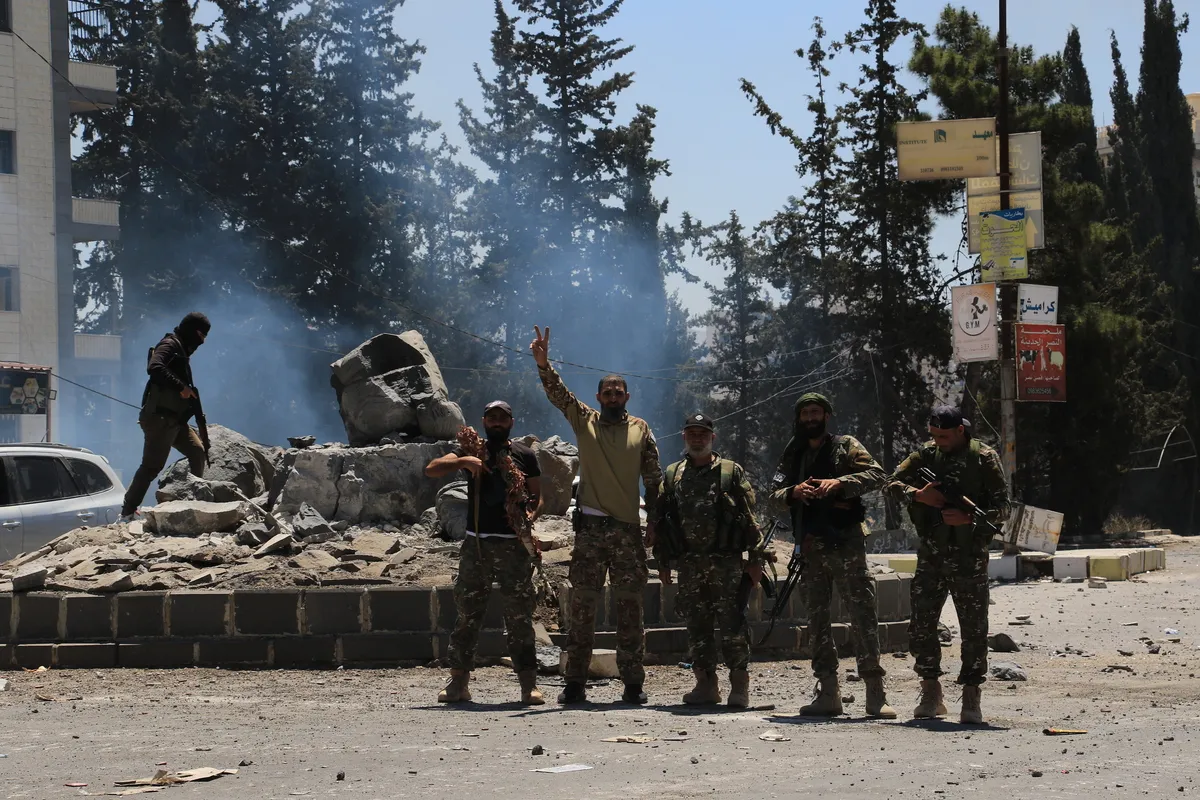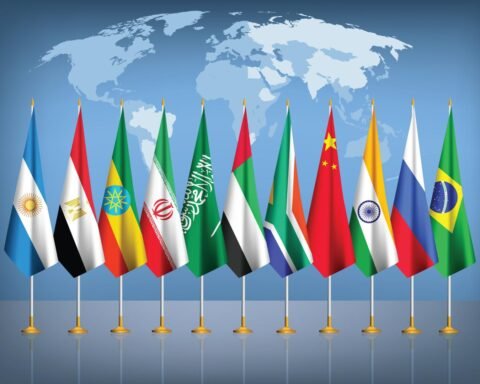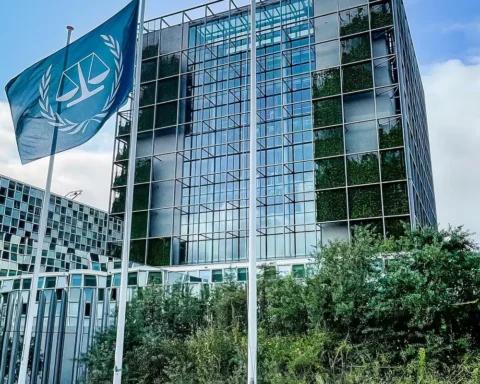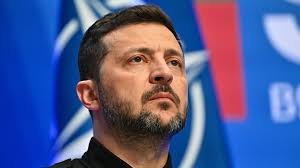The fragile peace in southern Syria has once again collapsed, with violent clashes erupting in the As-Suwayda Governorate, a predominantly Druze region that has become the latest flashpoint in the country’s prolonged civil war.
The Syrian Ministry of Interior announced on Friday that government forces are redeploying to Suwayda to suppress renewed fighting between Druze militias and armed Bedouin groups. The violence erupted just hours after a ceasefire—brokered by regional players—failed to hold.
The situation intensified when Israeli air forces launched strikes on a Bedouin convoy traveling along the Palmyra–Homs highway, alleging that the group was en route to join the escalating conflict in Suwayda. The airstrikes mark a significant escalation, highlighting Israel’s increasing concern about instability near its borders.
Public broadcaster Kan News reported that the strikes were a strategic move aimed at preventing armed Bedouin groups—some of whom have been linked to extremist networks—from reinforcing their allies in southern Syria.
The Israeli government, under Prime Minister Benjamin Netanyahu, has previously issued warnings to Damascus, urging it to pull back military units from Syria’s southern territories.
The conflict has already claimed hundreds of lives and displaced tens of thousands of civilians. The breakdown in law and order has prompted fresh concerns from international observers, including the United Nations, which has called for immediate humanitarian access to the affected areas.
U.S. Special Envoy Tom Barrack issued a public statement urging Syria’s ethnic and sectarian communities—particularly Druze, Bedouin, and Sunni Muslims—to disarm and work together to rebuild a unified Syrian identity.
“We call on all communities—Druze, Bedouins, Sunnis, and others—to lay down their arms and join hands in shaping a new, inclusive Syria,” Barrack said in a social media statement.
His remarks followed reports that Syria’s interim leader Ahmad al-Sharaa had reached a short-lived ceasefire deal with Netanyahu, facilitated by Turkey, Jordan, and other regional stakeholders.
Also Read; Burkina Faso Junta Axes Election Commission Amid Controversy
With clashes spreading and infrastructure collapsing, international aid agencies are warning of a worsening humanitarian crisis. Roads remain unsafe, hospitals are overwhelmed, and water and food supplies are dwindling.
Local residents in Suwayda, a stronghold of the Druze minority, accuse the Syrian government of abandoning them and failing to maintain order. The Bedouin tribes, many of whom are semi-nomadic and marginalized, say they are defending their communities against state oppression and armed militias.
Tensions between these groups date back decades but have flared significantly since the beginning of the Syrian civil war in 2011, which has left more than 500,000 dead and turned millions into refugees.
With Russia preoccupied by its own geopolitical challenges and the Arab League offering only muted responses, the risk of full-scale regional involvement is growing. Analysts warn that unless an immediate and enforceable peace agreement is reached, Syria’s southern front could become the next major theatre of conflict.







